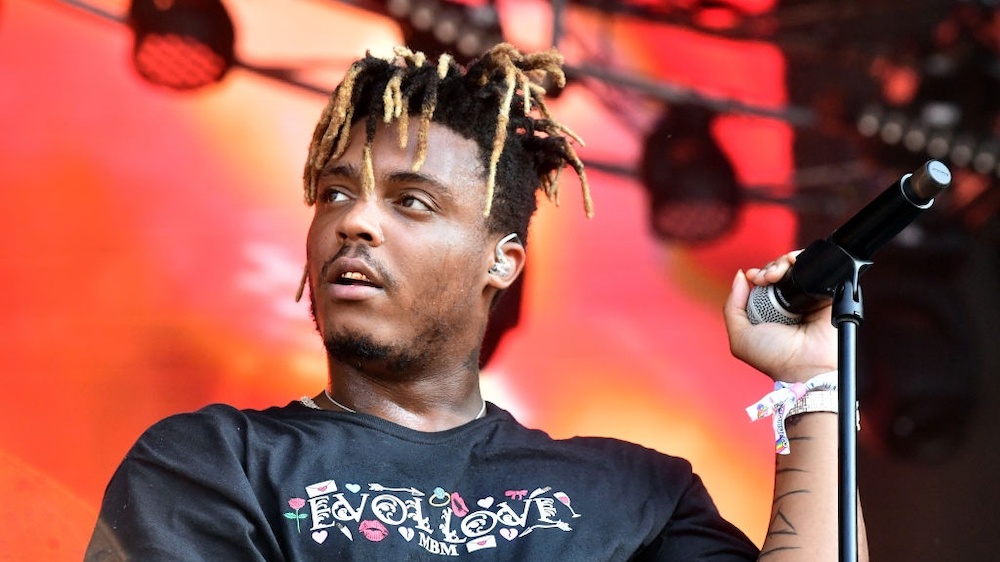If you’re interested in sharing your opinion on any cultural, political or personal topic, create an account here and check out our how-to post to learn more.
____
All my childhood, I felt like the Tin Man from The Wiz (the Black version of The Wizard of Oz). Growing up in the westside projects of St. Louis leaves many fatherless youths needing a heart. Looking back, I wonder, “What would I do if I could feel?” Instead, I had to build a wall around my heart to protect me from sucker punches in hallways, psychological abuse and the abandonment of a drug-dealing, womanizing father. Throughout my years, hip-hop was my therapy, but now it's time for me to go against the “juice world.”
In the hood, many Black fatherless boys develop a desire for respect or “juice.” They want to be immortalized in death on t-shirts and walls. As shown in Melina Matsoukas’ film, Queen and Slim, for many Black males, it doesn’t matter if they die famous or infamous — they simply want to be remembered. Without question, the absentee or “in and out” dad marks the starting point of our want to be seen, for someone to know we are here. It is no wonder hip-hop is therapy for the marginalized.
My therapists, a collective of ‘80s and ‘90s fatherless male rappers, taught me to wear my pain as a badge of honor. Their lyrics spoke of my days waiting on a stoop with the anger of broken promises and gave it a big middle finger. They taught me to wear my survival like a banner — a spectacle for the world to see. So, when my father was murdered at the age of 60, two days before Thanksgiving Day, I did not feel a thing. Not because I hated him; I just did not have the emotional currency to feel anything for him. As bad as it may sound, I could only hear the lyrics of Tupac Shakur’s song, “Dear Mama.”
He passed away and I didn't cry, cause my anger
Wouldn't let me feel for a stranger
I could not force myself to muster any tears. I found myself locked in a head place instead of a heart place. I just kept thinking, “Why did he die a two-bit drug dealer? Why did he not care enough about himself, his children and grandchildren to leave the drug game alone? Why did he need this lifestyle to feel like a man?”
I did not have the capacity to feel.
Then, shortly before his funeral, I found out on Facebook 21-year-old rapper Juice Wrld died a tragic death linked to substance abuse. I discovered Juice Wrld (also a fatherless youth) made surrogate fathers from musical legends. Ironically, he admired Tupac’s character Bishop, in the movie, Juice, a tragic story of a fatherless teen who sought to gain respect, or “juice,” by engaging in murderous behaviors. In the film, Bishop’s quest for juice led to an early death. It is quite prophetic; the young Chicago artist chose to name himself after this film. At the tender age of 21, he has also become a musical legend, dying from a drug-induced seizure. Tragically, Juice Wrld sought to escape his personal demons and gain recognition through drug use. Underneath his lyrics of “being a king” and “chasing green,” the rapper describes his life as a “lost and found,” as he desired to reconnect with his absentee father who recently passed away.
Unfortunately, many Black men like Juice Wrld and Pac numb this kind of pain through self-medication and suicidal behaviors. Underneath rhymes saturated with lean, pills and weed smoke, both artists lyrically expose their fears hoping not to compromise their fragile manhood. In the song, “So Many Tears,” Tupac rapped the following:
My every move is a calculated step
To bring me closer to embrace an early death
Likewise, in “Legends,” Juice Wrld speaks about the plight of our contemporary hip-hop therapists and storytellers who don’t make “it past 21.”
Many fatherless youths are expected to emerge to our destination of maleness without a proper GPS system. Although, as the rapper Jay-Z eloquently states in the book, Decoded, hip-hop enabled many daddy-less kids to create their “own fathers on wax.” Nonetheless, this construction of manhood left many of us with impenetrable walls.
The artist Mos Def says it best. Many Black men “are seeking death just to call ourselves brave.” We are afraid to leave the juice world.
Regrettably, I could not scale my self-erected walls to attend my father’s funeral. Maybe because I did not want to acknowledge this gaping wound that will always be a part of my male identity. Or maybe I wanted to avoid the feelings of rejection when I see photographs with him with his other children. See, this wall concealed me from noticing my life existed outside his picture frame.
Perhaps I should follow the advice of bell hooks in the book, We Real Cool, and imagine a brave new world where Black males can be fearless enough to bear our scars with open hearts. After four decades, I can credit my father for helping me start a new legacy for my children as I begin to embark on this journey. From now on, it is me against the juice world.
____
Dr. Jessie L. Adolph is an English Professor of African Diaspora Studies at Lincoln University in Jefferson City, Missouri and the lead vlogger of Dad Cypher on YouTube.
